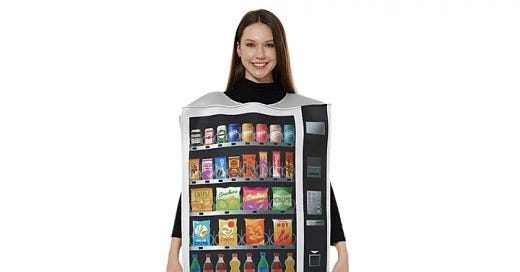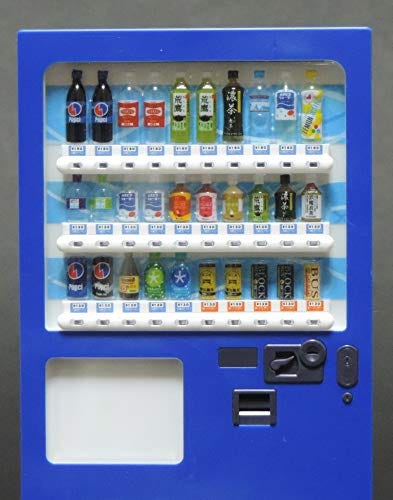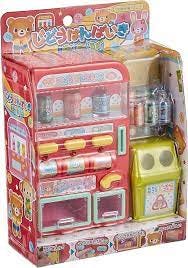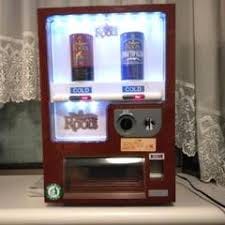Souvenir Wednesday - That One Time I Accidentally Became the Chūhai Dealer of the Month
My brief and illustrious career as a teenage-tour wrangler began with what I thought would be an easy gig: babysit a group of 16 and 17-year-olds from southern Germany visiting Japan, plus a couple of adults who looked like they’d much rather be on holiday without 20 teenagers in tow.
Now, these kids were minors in Japan. But back home? Many of them were already of legal drinking age. Try explaining that legal contradiction to a 17-year-old whois feeling very ready for “adulthood”.
Anyway, it was their final night in Japan. Spirits were high, everyone was buzzing with end-of-trip energy, and one of the teachers decided to go all out and host a little hotel lobby “party.” He returned from the convenience store grinning, arms full of cheerful, colourful cans. “Juice for everyone!” he said, proud of his contribution.
As the group’s translator and as such designated “adult-like presence,” I gave the cans a once-over and immediately froze. Oh no. Half of them were chūhai (チューハイ or 酎ハイ). Not just “a little bit alcoholic,” but full-on fruit-flavoured shōchū grenades in camouflage - the kind that could knock out an inexperienced teenage drinker easily.
For the uninitiated: chūhai (チューハイ or 酎ハイ) is shōchū plus fizzy water plus fruit syrup, wrapped in packaging that screams “Picnic!” but definitely mumbles “…for adults only” under its breath.
So I had to be the buzzkill. The teachers looked terrified. “I thought they were lemonades!” he whispered, visibly pale. Understandably, he didn’t want to serve alcohol to minors - even if his country’s laws would have allowed it. The teachers briefly floated the idea of just drinking all 22 cans themselves (a valiant thought), but then remembered they had a morning flight. With 20 teenagers. They made the smart choice.
And so, I was sent home with the loot. Twenty cans of chūhai, casually handed over as if I’d won a very questionable prize, piling up in my bicycle’s front basket. That weekend, I arrived at my friend’s place with a giant bag of “souvenirs.” If that’s not a tip, I don’t know what is. (Though I won’t lie - cash would’ve been nice.)
“Japan Is Famous for Its Vending Machines”
Yes, yes, the stereotype is true: Japan does have vending machines everywhere. As of a recent count (December 2024), the number sits at around 2.2 million. That’s roughly 56 people vending machines for every 56 residents. You can find them in remote mountain roadsides, glowing quietly next to rice fields, and of course, lined up like sentries on station platforms. I recently saw someone on social media trying to buy and ship one home. Cute idea. But unless you’ve got 710,000 JPY lying around (plus room in your suitcase, a forklift, a voltage converter and an infinite supply of Oishii Ocha bottles), maybe just stick to the miniature version.
Which brings me to this week’s Souvenir Wednesday: Vending machine-themed things that won’t cost a small fortune or require international freight forwarding. Maybe this will make for a nice Halloween costume?
Credit: monoii
Miniature Vending Machine Model Kits
The miniatures look super cute. Search for 自動販売機 プラモデル on Rakuten or Amazon, and you’ll find 1/12 scale kits, that let you build your own vending machine empire. Minus the electricity bil. The kit comes with tiny plastic cans and bottles to stock your machine. Great for a cosy afternoon project - or, three depending on your dexterity.
Display it next to your Gundam. Or stage an Evangelion grabbing a Pocari Sweat. Either way, your desk just got cooler.
Credit: PinkTank
Vending Machine Toys
If you’re shopping for a niece, nephew, or that fully-grown friend who loves kitsch-toys, toy vending machines (like this one) are a win. Many dispense little bottles when you press buttons and some even come with a tiny trash can (!). You’ll find everything from “kids will love it” to “adults pretending they got it for the kids” on Amazon and Rakuten No judgment. I kind of want one too.
Credit: Muraoka
Desktop Vending Machine Fridges
Yes, this exists. A mini fridge shaped like a vending machine. I found one on Mercari - about 45 cm tall, holds 8 cans, even lights up with a “Sold Out” sign when empty. And yes, it only releases your drink if you insert a 100-yen coin (I feel inflation!) It’s absurdly adorable. I want one. You want one.
But a heads-up: this gadget runs on 100V, so if you’re not in Japan, you’ll need a converter. The sellers of fleamarket platform Mercari do not ship abroad, but Buyee or similar services can help make your dream a reality. (From the US though, I guess that’s an extra 24% for the buyer to pay…)
Credit: IDK, the seller on Mercari? 7/11? Roots?
Bonus: How Not to Accidentally Buy Alcohol in Japan
Let’s set the scene: you’re on a group trip, spirits are high, and you’ve kindly offered to pop into the convenience store to grab drinks for everyone. You return triumphant - with 20 icy cans of what you thought was lemonade - only to learn, too late, that you’ve just supplied enough alcohol to get the entire group disqualified from the next three Olympics.
First, check for the word アルコール (alcohol) followed by a percentage 3%, 5%, 9%. That combination, definitely booze. No matter how innocent the packaging looks. (Looking at you, lemony-looking Strong Zero.)
Now, here’s the twist: you’ll also see numbers like 果汁100% on juice cartons. That doesn’t mean "100% party" - it just means “100% fruit juice”. Totally safe.
Watch out for giveaways like チューハイ or 酎ハイ (chūhai), サワー (sour), ビール (beer), リキュール (liqueur), or 梅酒 (umeshu). All of these spell trouble if you’re shopping for minors.
Safe bets: drinks labelled 清涼飲料水 (soft drink) or ノンアルコール (non-alcoholic).
One more thing: drinks are usually separated into alcoholic and non-alcoholic fridge sections. But “usually” is doing a lot of heavy lifting here. When in doubt: double-check. Or, better yet, just hit up a vending machine. Most vending machines only sell non-alcoholic drinks anyway - and if they do sell alcohol, they’ll politely ask for ID first. No awkward judgment, just a beep and a scan.







